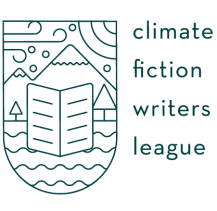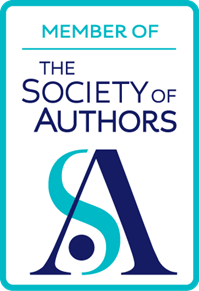Laura Baggaley, children's & YA Novelist
Sign up here to receive a free short story,
followed by monthly updates with reading recommendations, freebies and inspiring eco tips.
I value your privacy, would never spam you and, of course, you can unsubscribe at any time.
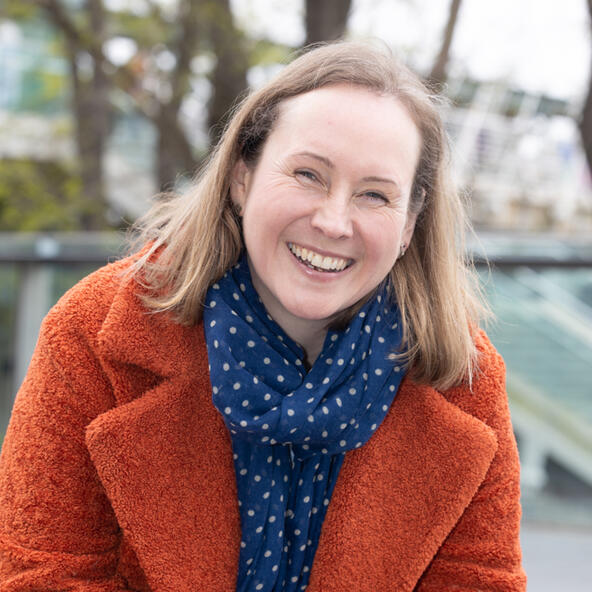
author photo: William Cheung
About me . . .
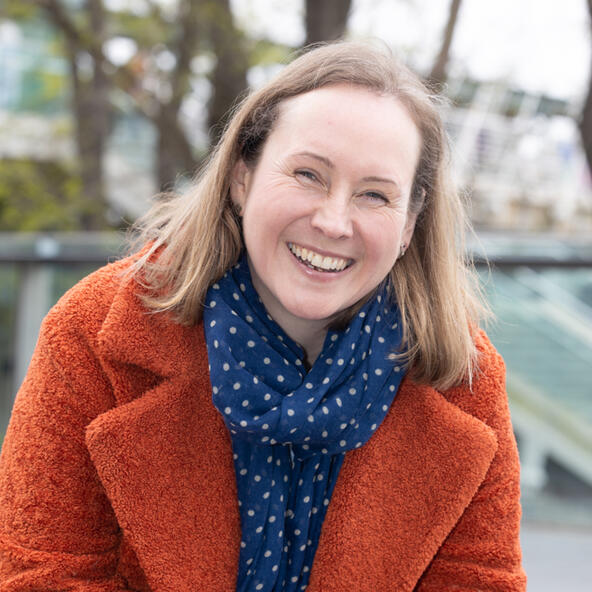
Words were always The Thing.They were The Thing for my parents too – my New Zealand-born English teacher mum and my England-born international-journalist dad. By the time I was twelve, we had lived in four different countries and I could happily fly alone from Heathrow to Nicosia. Travel was an essential part of life, and every journey involved a rucksack full of books.Books took me to university, to study literature – then came a plot twist. The theatre lured me away from writing. I trained as a director, and for years told stories on the stage.But I missed other kinds of storytelling. Coming back to writing was like returning to my own country after years of exile. Hard work, a lot of adjustment, but a feeling of rightness – ah yes, this is where I’m meant to be.I changed. And so did the world. I don’t travel by plane anymore (you can get a long way by train). I think a lot about the new world we need to build – a world with climate justice, renewable energy and sustainable economies.When I was a kid, the books in my rucksack were stories about rebels and poets. About people being brave enough to tell the truth and stand up to bullies. About people believing in a different, better world and, by imagining it, making it possible.Those are the books I try to write.
Books
My new novel Dirt is out now and here's what readers are saying!
"Dirt is such a good book that it's definitely in my top 3!" (R, age 11)"Dirt is so fantastic! A realistic, engaging and research-driven take on our climate future - Laura has delivered an exceptionally well crafted novel perfect for teen readers."
Wren James, award-winning YA author of books including Last Seen Online, Green Rising & The Quiet at the End of the World"Every so often, a book comes along that feels like a breath of fresh air – the kind of story that reminds us why we love curling up with a good read. Laura Baggaley’s Dirt was one of those surprises for me. " The Phantom Paragrapher“This is an authentically thrutopian work: that is to say, it charts a viable path through the dystopian-ish challenges that we (and, especially, young people) are without doubt going to face in the next generation or two. And it does so with panache. It’s a cracking read!”
Emeritus Prof. Rupert Read, Co-Director of the Climate Majority Project & author of Why Climate Breakdown Matters (Bloomsbury)."By the end, Dirt wasn’t just a story about survival – it was about hope and resilience. For a YA read, it carries weight, but it never loses its gentleness or its sense of possibility. Even as an adult reader, I was completely absorbed and left thinking about it long after the last page.” MomoBookDiary
Food is scarce in Newbeck. Rations are meagre. Everyone grows what they can on government-allotted Squares of land, using seeds and soil bought from mysterious megabusiness, the Green Cultivation Corporation.
One hot day, a strange girl rides into town wearing a sunhat as big as a bicycle wheel. She arrives alone, on a desert track from nowhere, full of questions no-one’s ever asked before.
Local boy Sam is fascinated by her. Why won’t she talk about her family and where she lives? Why is she so curious about his way of life? And why can’t he get her out of his head . . .
A dystopian eco-romance for young adults, Dirt shows that even on stony ground, hope can grow.
Dirt can be ordered here
Sign up below to receive a free mini-prequel to Dirt and monthly book news!
When Dirt was published, I talked with Denise Baden, Professor of Sustainable Practice at the University of Southampton, about using fiction as climate communication. Here's the interview...Denise: Last month, Green Stories publisher Habitat Press released its first novel aimed at young adults. Today, I’ll be talking to author, Laura Baggaley, about why she chose to use fiction as a way of talking about green themes and how climate messages can be incorporated into entertaining mainstream novels. Hi Laura! First of all, can you tell us why you write climate fiction?Laura: In his brilliant book, From What Is To What If, Rob Hopkins describes how the climate and environmental crises are fundamentally a crisis of imagination. This is a quote from the book that I find really inspiring:“Bringing about the world we want to live in, the world we want to leave to our children is, substantially, the work of the imagination, or what educational reformer John Dewey describes as ‘the ability to look at things as if they could be otherwise’.”So I wanted to take up the challenge of writing stories that consciously try to visualise different positive futures. Stories stick in the brain more than facts. Telling ourselves stories about how the world could be is an essential part of making change possible.I’m not a political animal, and I’m too timid to chain myself to railings, so stories are where I pour my activist energies!Denise: How do you bring environmental themes into your work? Do you ever feel there’s a danger of ‘preaching’?Laura: Yes! I’m very conscious of the danger of info-dumping or lecturing my readers, especially as I’m writing for a young audience. There are two strands to how I approach this – the practical and the mythological.By mythological, I mean the underlying myths that shape our society. Sometimes we forget that the stories by which we live can be changed. Ursula K Le Guin famously pointed out that we used to believe that the divine right of kings was an inescapable truth – until we changed the story. In the past, the social story has also stated that women were inferior, that enslaving people was acceptable, that homosexuality was a crime. The myths can and must change.Today, we live in a society where profit is considered the ultimate goal. The story we tell is that infinite growth is necessary for wealth and happiness, and that profit must take precedence over everything. Since we’re living on a finite planet, this story won’t have a happy ending! So we need to rethink. It necessitates a fundamental shift in how we perceive things, and in a novel you can imagine a world where people are already thinking differently.My book, Dirt, is an eco-romance about two teenagers who live in the near future. Global food supply chains have failed. Everyone lives on rations, and supplements their food by growing as much as they can on government-allotted ‘Squares’ of land. For most people, farming is controlled by a huge agricultural company that dictates what crops they plant and how they manage them.The two teenagers are Sam and Avril. Sam lives in town, where he and his family follow the rules of the Green Cultivation Corporation. Avril comes from a completely different world – she lives in a beautiful hidden valley where her extended family practices sustainable agriculture. One day, she sneaks out of the valley to explore and encounters Sam. The collision of their different ways of thinking about how to farm and how to live is what drives the story.So the book is a romance about sustainable agriculture! And in terms of the underlying myths, the foundations of the story, what I’m really talking about is community versus insularity, and sharing rather than hoarding.Denise: You said there were two strands to approaching climate fiction. You’ve talked about myths, what do you mean by the practical strand?Laura: Ah yes! The other strand is exploring tangible practical changes that people can make right now. We need to normalize green solutions. The more we make it commonplace for people to discuss and choose green options in life, the more it will be taken for granted that this is what we should all do.So in the world of Dirt, many things have changed for the better – there’s a Library of Things in town, upcycling and repairing belongings has become the norm, industrial animal farming has been banned, and people cycle or use cheap electric taxis to get around. Everyone’s house has solar panels and heat pumps as standard. By incorporating positive environmental choices into the world of the book, I’m trying to make them seem like obvious thing to aim for in our own futures.At the same time, I’m also drawing attention to concrete negatives and practical alternatives. Dirt might be set in an imagined future, but the situation it describes is exactly what’s happening today. Industrial agriculture is controlled by a tiny number of monopoly-wielding mega-businesses, promoting profit-driven farming methods that cause soil degradation and the annihilation of insect populations. Pesticides, monocrops, seed patents, repeated ploughing, fossil fuel-derived fertilizers. When soil becomes dirt, when there are no pollinators, food can’t grow. It isn’t hard to imagine the collapse of present-day food supply chains; this dystopia isn’t far off.And then I offer practical alternatives. It’s a novel, of course, so Dirt isn’t a manual for how to run an allotment! It’s primarily a story about first love. But the backdrop to their relationship – and what causes tension within it – is the question of how we farm to feed ourselves. The first time Sam and Avril have an electric moment of physical contact, they’re holding a handful of soil and a worm inches across their thumbs! I’ve woven elements into the plot where Sam’s neighbours learn about compost and sustainable farming practices. So the book isn’t just telling us how bad things are, but how easy it would be to make things better.Denise: Why do you write climate fiction for children and teenagers?Laura: Let me be clear: I don’t think it should be the job of younger generations to fix the mess they’re inheriting. That is our work to do, right now, so that we can give them the best chance of a liveable future.The reason I love telling stories for children because it allows my imagination to roam more freely. There’s a great quote from Jim Dator: “Any useful statement about the future should at first seem ridiculous.” I love the fact that writing for young people gives me licence to be ridiculously ambitious in my dreaming.Young people’s minds are still open. They see things clearly. Kids look at the world and say “that isn’t right”, and they don’t fudge the issue with excuses (like the sale of weapons or oil earning important shareholder profits). Asking difficult questions is vital, and kids need to be encouraged to do this. To look at the ways things are and say, “hang on, is that the best way to do this? – what if we did it differently?” Kids don’t assume the old ways are best, and if we ignite their imaginations and fill their brains with positive visions of possible futures, those stories will come along with them as they grow up.I also really hope that adults will read these books too! Katherine Rundell wrote a brilliant essay called “Why You Should Read Children’s Books, Even Though You Are So Old and Wise”, and it’s full of wonderfully convincing arguments. I love this quote, about returning to children’s books as an adult:“Those who write for children are trying to arm them for the life ahead with everything we can find that is true. And perhaps, also, secretly, to arm adults against those necessary compromises and necessary heartbreaks that life involves: to remind them that there are and always will be great, sustaining truths to which we can return.”Denise: Is there anything else you want to tell us, before we finish?Laura: If your readers are interested to read more about creative writing as a way of communicating climate themes, I’d like to draw their attention to a Substack Magazine called Bending The Arc. I’m on the editorial team, and we publish stories, poems and features that bend the arc of the possible towards a thriving future on Earth. The complete first edition is available to read here – including an extract from Dirt! – and a new batch of pieces will be released when the second edition is published in October, so do subscribe now!
My forthcoming book Enough will be published in 2026...
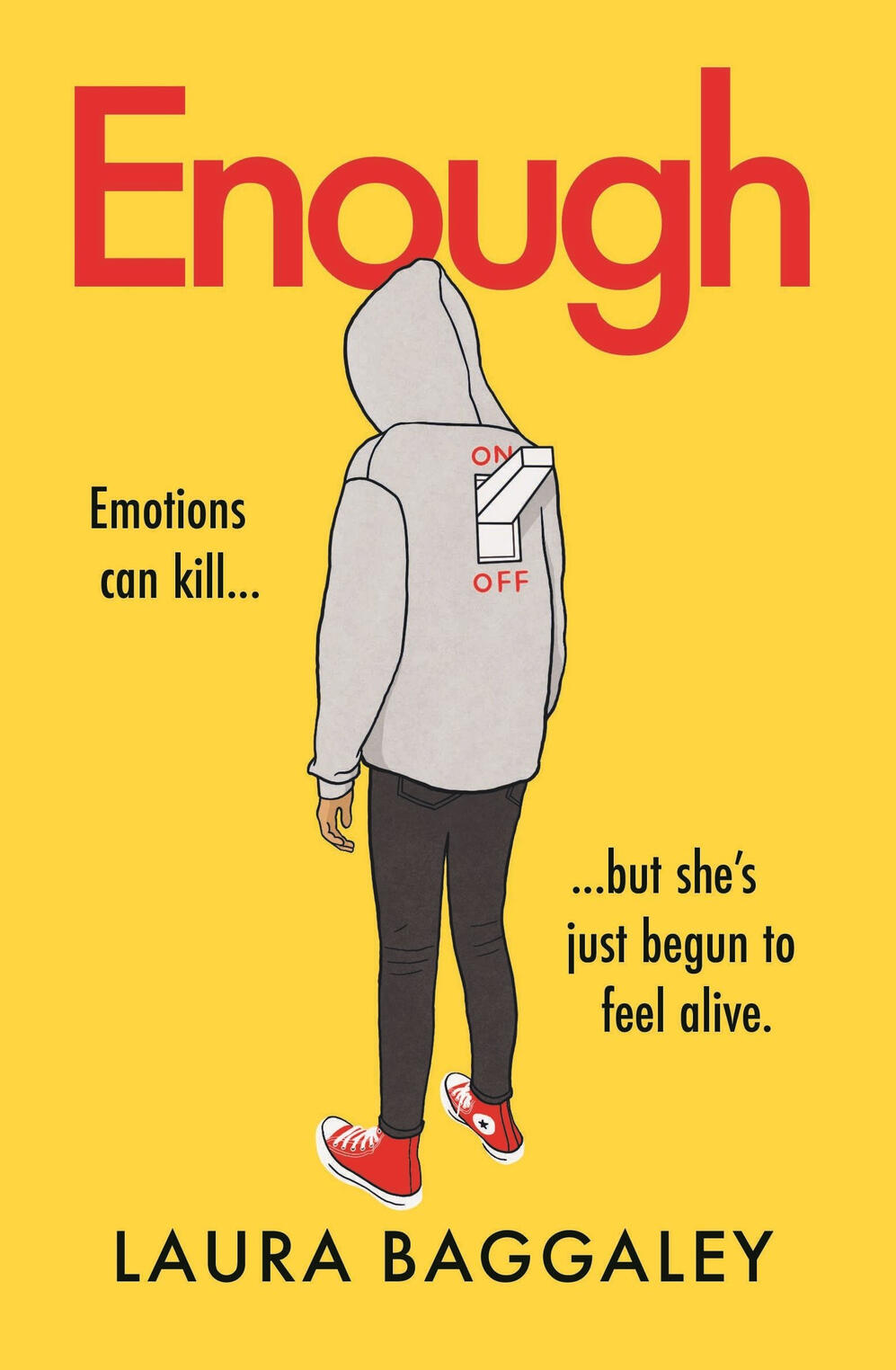
A medical breakthrough solves the problem of endless old age: if a person has had enough of life, their 'Switch' flips and they instantly die.Fifteen-year-old Margaretta lives in fear of her Switch. Since her mum died four years ago, she has lived alone with her violent father and survived only by shutting out all feelings. Margaretta's emotional armour starts to crack when she meets Sky, a charismatic vagabond, and runs away with him.Sky introduces Margaretta to the exhilarating atmosphere of the Blue Cat nightclub. But as the attraction between them intensifies, they find themselves drawn into a murky world of political corruption controlled by the club’s shady clientele. With dishonesty eating away at the heart of power, countless lives are on the line.Emotions can kill, but Margaretta has just begun to feel alive.Enough was previously a finalist in the Mslexia Children's Novel Competition and an even earlier draft was longlisted for the Times / Chicken House Children's Fiction Competition.
Sign up to be the first to hear about future books - you'll receive monthly updates and occasional freebies!
Workshops
I love visiting schools, libraries, festivals, bookshops – anywhere there are potential readers to connect with!
My theatre background has given me extensive experience in leading workshops, and I'm happy to tailor my visits to the needs of different groups.
Please contact me to discuss any of the following options:
Writing workshops for kids or adults (e.g. climate or eco fiction, dystopian fiction, world-building, character creation)
Talks for adults or kids (e.g. the writing life, inspiration, writing & the environment, editing & publication)
Book readings, book signings, author Q&A
Panel discussions, readings or interviews
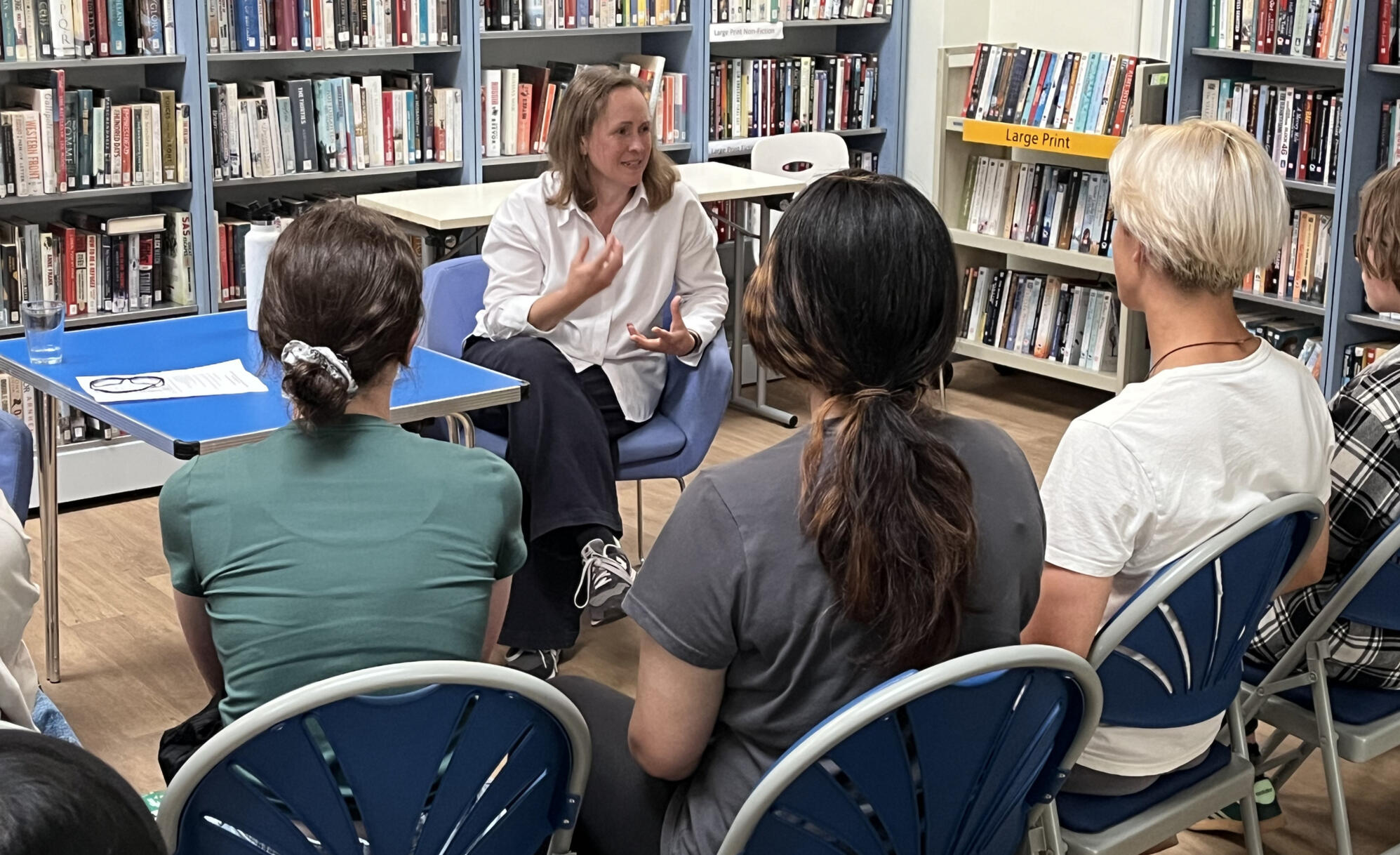
Testimonial from a Trustee of Northfields Community Library
“Laura gave a talk in June at Northfields Community Library for members of the Young Adult Book Club there. She spoke brilliantly about her passions, the background to and process of writing Dirt and her second novel, which will be published soon. She also gave the audience advice about how to start writing creatively. Laura is a great communicator and the young attendees found it easy to engage with her. Many of the audience had read Dirt and were keen to share their thoughts and ask further questions and feedback after the talk was enthusiastic and very appreciative.”
Testimonial from Assistant Librarian, Streatham Tate Library
"Laura ran a writing workshop for young adults at Streatham Library to encourage their creative writing skills and to think about what the future environment could be. She supported the attendees' writing with mini creative tasks and inspired them to think of ways they could write their future through example images and comics. The children thoroughly enjoyed themselves and Laura was very engaged with them, which showed when everyone asked when the next sessions would be! Laura is a great speaker and a positive model for young people who are interested in writing, we would absolutely have her again!"
News & Events
If you'd like to read past editions of my monthly newsletter - with YA book recommendations, writing updates and eco tips - you can see all my posts here.
I was delighted to be interviewed by the inspirational Joanna Penn for her writing podcast, The Creative Penn. We talked about writing climate fiction and performance tips for authors - listen here.
I'm proud to be part of the editorial team for Bending The Arc, a thrutopian Substack Magazine publishing stories, poems and features that bend the arc of the possible towards a thriving future on Earth...
The first edition launched on Earth Day, 22nd April 2025, and was followed by edition 2 on Sustainability Day, 29th October 2025. It's free to subscribe and all pieces are available to read here!
My novel Dirt is out now and new book Enough will be published in 2026. See the books pages for more information.
I'm now working on the final draft of my next novel, an early draft of which was longlisted for the Yeovil Literary Prize.Sign up below to be the first to hear more - you'll receive monthly emails with YA book recommendations, reader freebies and inspiring eco tips.
Contact
I love to hear from readers! What books are you enjoying at the moment? Do you have an all-time favourite YA or children's novel? What fictional character would you most like to meet?
Use this form to drop me a line . . .
